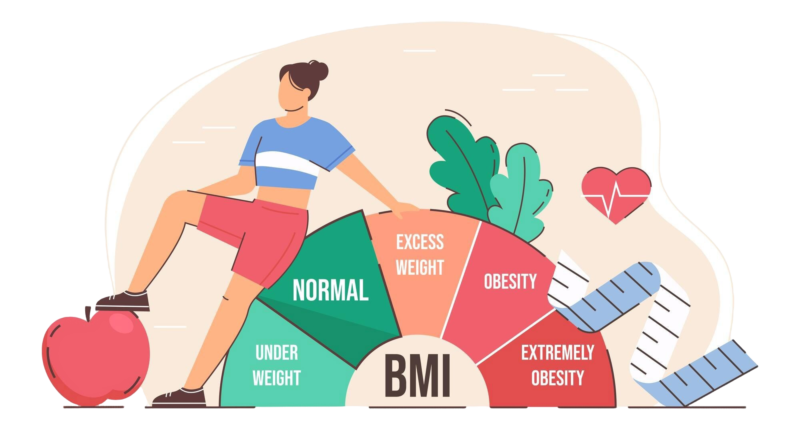When it comes to health and wellness, understanding your body weight is crucial. A BMI (Body Mass Index) calculator is a handy tool that can help you gauge whether you are within a healthy weight range. Alongside this, creating a healthy weight plan can significantly impact your overall well-being. This article will explore how to effectively use a BMI calculator and devise a sustainable healthy weight plan.
What Is BMI and How Is It Calculated?
BMI stands for Body Mass Index, a numerical value derived from your weight and height. The formula is simple:
BMI= Weight (kg) ➗ (Height (m))2
To determine your BMI, you can use an online calculator or perform the calculation manually. Here’s how to interpret the results:
- Underweight: BMI less than 18.5
- Normal weight: BMI between 18.5 and 24.9
- Overweight: BMI between 25 and 29.9
- Obesity: BMI of 30 or higher
Understanding where you fall within these categories can guide you in developing a healthy weight plan tailored to your needs.
Why Is BMI Important?
Using the BMI calculator helps identify potential health risks associated with being underweight, overweight, or obese. Individuals with a high BMI may be at risk for conditions such as heart disease, diabetes, and high blood pressure. Conversely, being underweight can lead to nutritional deficiencies and weakened immunity.

Creating a Healthy Weight Plan
Once you have your BMI, it’s time to create a healthy weight plan. Here are essential components to consider:
1. Set Realistic Goals
When establishing your weight goals, aim for gradual changes. Aiming to lose or gain 1 to 2 pounds per week is generally considered safe and sustainable. This gradual approach helps avoid the yo-yo effect of rapid weight loss and ensures long-term success.
2. Balanced Diet
Focus on a balanced diet that includes:
- Fruits and Vegetables: Aim for a variety of colours and types.
- Whole Grains: Make healthier choice by opting for whole-grain bread, pasta, and rice.
- Lean Proteins: Include chicken, fish, legumes, and nuts.
- Healthy Fats: Consider choosing foods such as avocados, olive oil, and fatty fish..
Avoid highly processed foods, sugars, and excessive fats, as these can hinder your weight goals.
3. Regular Physical Activity
Incorporate regular exercise into your routine. Strive to engage in at least 150 minutes of moderate aerobic activity or 75 minutes of vigorous activity every week. Additionally, make sure to incorporate strength training exercises at least twice a week. It’s important to find physical activities that you genuinely enjoy as this will make it easier for you to stick to your fitness plan.
4. Monitor Your Progress
Keep track of your weight and any changes in your body measurements. Using a journal or app can help you stay motivated. Celebrate your successes, no matter how small, and adjust your plan if you hit a plateau.
5. Seek Professional Guidance
If you are unsure how to begin, consider consulting a healthcare professional or a registered dietitian. They can offer customized guidance tailored to your health history and objectives.
Conclusion
Using a BMI calculator is an effective way to assess your body weight and health status. Once you understand your BMI, you can create a tailored healthy weight plan that incorporates realistic goals, a balanced diet, regular exercise, and monitoring progress. Remember, achieving and maintaining a healthy weight is a journey that requires patience and dedication. Make small changes to create a healthier lifestyle that lasts.
By following these guidelines, you can work towards achieving a healthy weight and enhancing your overall well-being.









